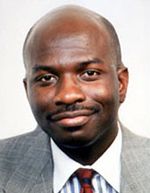Dowie Defiant
Submitted by Sheldon Rampton on
Doug Dowie, the former Fleishman-Hillard executive who is about to begin serving prison time for conspiracy and fraud, continues to maintain his innocence.

Submitted by Sheldon Rampton on
Doug Dowie, the former Fleishman-Hillard executive who is about to begin serving prison time for conspiracy and fraud, continues to maintain his innocence.
Submitted by Sheldon Rampton on
Ann Higgins of Utopia Communications, a member of the Public Relations Society of America, has started a blog about ethics and public relations.
Submitted by Diane Farsetta on
In his paper "Loath to admit: Pressures on ethical disclosure of news release sources," Australian academic Peter Simmons analyzes issues around video news releases (VNRs), or fake TV news.
Submitted by Diane Farsetta on
Submitted by Bob Burton on
A former corporate PR executive has been sentenced to 15 months of periodic detention, after being convicted for insider trading in shares of a company she advised. Between July 2003 and December 2004, Margot McKay, the founder of Margot McKay and Associates, provided PR consultancy advice to the gambling machine company Aristocrat Leisure.
Sharon Eubanks, the lead attorney in the U.S. Department of Justice (DOJ) case against tobacco companies, recently told the [http://www.washingtonpost.com/wp-dyn/content/article/2007/03/21/AR2007032102713.html Washington Post] that Bush appointees at DOJ pressured her to weaken the government's case against the tobacco companies. The Bush administration has been linked to political rigging of judicial matters recently with the firing of the eight U.S. Attorneys, but while these activities are in the headlines today, it's not the first time. A February 15, 2000 [http://query.nytimes.com/gst/fullpage.html?res=9D00E5DD1531F936A25751C0A9669C8B63&sec=&spon=&pagewanted=print New York Times] article shows that [[George Walker Bush|President Bush]]'s longtime political advisor [[Karl Rove]] (now a senior advisor in the White House) interfered with Texas Attorney General Dan Morales' plans to bring a lawsuit against the major American tobacco companies to recoup state Medicaid funds spent treating sick smokers. Rove helped draft a 1996 push poll aimed at maligning Morales in an attempt to pressure Morales not to file the suit. The push poll was financed by tobacco companies.
Submitted by Bob Burton on
The European Commission has backed the introduction of a voluntary register for lobbyists seeking to influence European Union officials. "All these groups or bodies are invited to register publicly whom they represent and what their objectives are. They are invited to declare funding sources and major clients," the commission stated.
There are many reasons why federal investigations might take some time to conclude. Perhaps the issues are complex. Maybe the parties under investigation are less than forthcoming. The investigating agency may lack the resources needed to resolve the matter in a timely fashion.
 On the other hand, a stalled investigation may be part of a crisis management strategy. When an embarrassing ethical or legal transgression surfaces, launching an investigation sends the message that the matter is being taken seriously. Thanks to a rapid news cycle and a lack of follow-up reporting, public attention shifts elsewhere as the investigation continues. Closing the investigation can be seen as counter-productive, as it once again calls attention to the problem and creates the expectation that the findings will be acted upon.
On the other hand, a stalled investigation may be part of a crisis management strategy. When an embarrassing ethical or legal transgression surfaces, launching an investigation sends the message that the matter is being taken seriously. Thanks to a rapid news cycle and a lack of follow-up reporting, public attention shifts elsewhere as the investigation continues. Closing the investigation can be seen as counter-productive, as it once again calls attention to the problem and creates the expectation that the findings will be acted upon.
Representative John Dingell (D-Mich.) may well have been pondering such matters on March 14, when he pointedly asked Federal Communications Commission Chair Kevin Martin about the status of the agency's ongoing Armstrong Williams investigation.
Submitted by Diane Farsetta on
As more information surfaces about Attorney General Alberto Gonzales' role in the Justice Department scandal over the firing of eight U.S. attorneys, Gonzales is going "on a public relations tour to boost his image," reports Jennifer Hoar.
Submitted by Bob Burton on
An examination of records from Minnesota, where legislation requires drug company payments to doctors to be disclosed, reveals that between 1997 and 2005 over 5,500 medical professionals in the state were paid a total of over $57 million. Gardiner Harris and Janet Roberts report that "another $40 million went to clinics, research centers and other organizations. More than 20 percent of the state’s licensed physicians received money.
Center for Media and Democracy (CMD)
520 University Ave, Ste 305 • Madison, WI 53703 • (608) 260-9713
CMD is a 501(c)(3) tax-exempt non-profit.
© 1993-2025